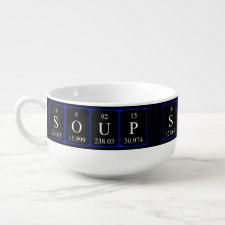
Authors: Ding HY, Chen RF, Liu MM, Huang R, Du YM, Huang C, Yu XY, Feng XH, Liu F
Article Title: Preparation and characterization of biocompatible molecularly imprinted poly(ionic liquid) films on the surface of multi-walled carbon nanotubes.
Publication date: 2016
Journal: RSC Advances
Volume: 6
Issue: (49)
Page numbers: 43526-43538.
DOI: 10.1039/C6RA08782E
Abstract: A series of novel protein molecularly imprinted polymers (MIPs) were synthesized through a surface molecular imprinting technique by using bovine serum albumin (BSA) as a template, acrylamide modified multi-walled carbon nanotubes (MWCNTs-AAm) as substrates, and allyl-functionalized ionic liquids (ILs) as monomers. The MWCNTs@BSA-MIPILs synthesized under different monomer/template/cross-linker ratios were characterized by FTIR, SEM and BET analyses. The adsorption kinetics and isotherm, imprinting effect, selectivity and competitiveness, reusability, and practical applicability were evaluated in detail. The influence of the outside diameters of MWCNTs and the anion types of ILs on the imprinting effect of the MWCNTs@BSA-MIPILs was also studied. The MWCNTs with smaller diameters (<8 nm and 10-20 nm) were more beneficial for the preparation of the surface imprinted polymers. The MIPs prepared with IL monomers composed of anions with low nucleophilicity and hydrogen bond basicity (PF6-), and high steric effect (CF3SO3-) were found to have a better imprinting effect in comparison with those prepared with Cl- and BF4-based IL and the traditional acrylamide monomers. They also exhibited higher selective recognition ability for BSA than for human serum albumin, lysozyme, trypsin and bovine hemoglobin. The imprinting and selectivity factors were greatly improved in a binary protein solution containing BSA and bovine hemoglobin. The developed MWCNTs@BSA-MIPILs were also successfully used for the purification of BSA from bovine calf serum. These results indicated that the PF6- and CF3SO3--based ILs, for their important role in stabilizing biomacromolecules, will be ideal functional monomers for the development of biocompatible MIPs for protein molecules
Template and target information: protein, bovine serum albumin, BSA



Join the Society for Molecular Imprinting

New items RSS feed
Sign-up for e-mail updates:
Choose between receiving an occasional newsletter or more frequent e-mail alerts.
Click here to go to the sign-up page.
Is your name elemental or peptidic? Enter your name and find out by clicking either of the buttons below!
Other products you may like:
 MIPdatabase
MIPdatabase









